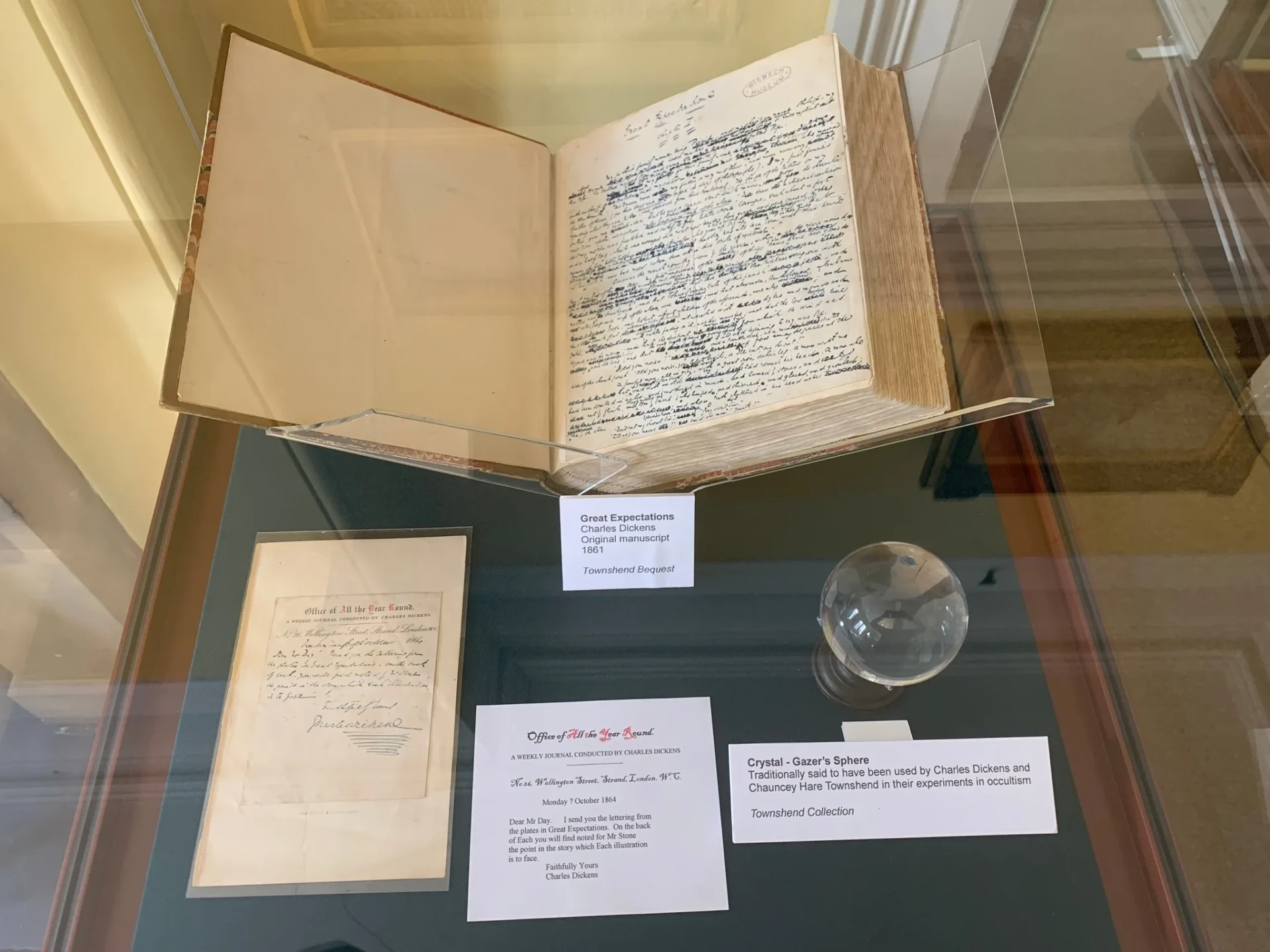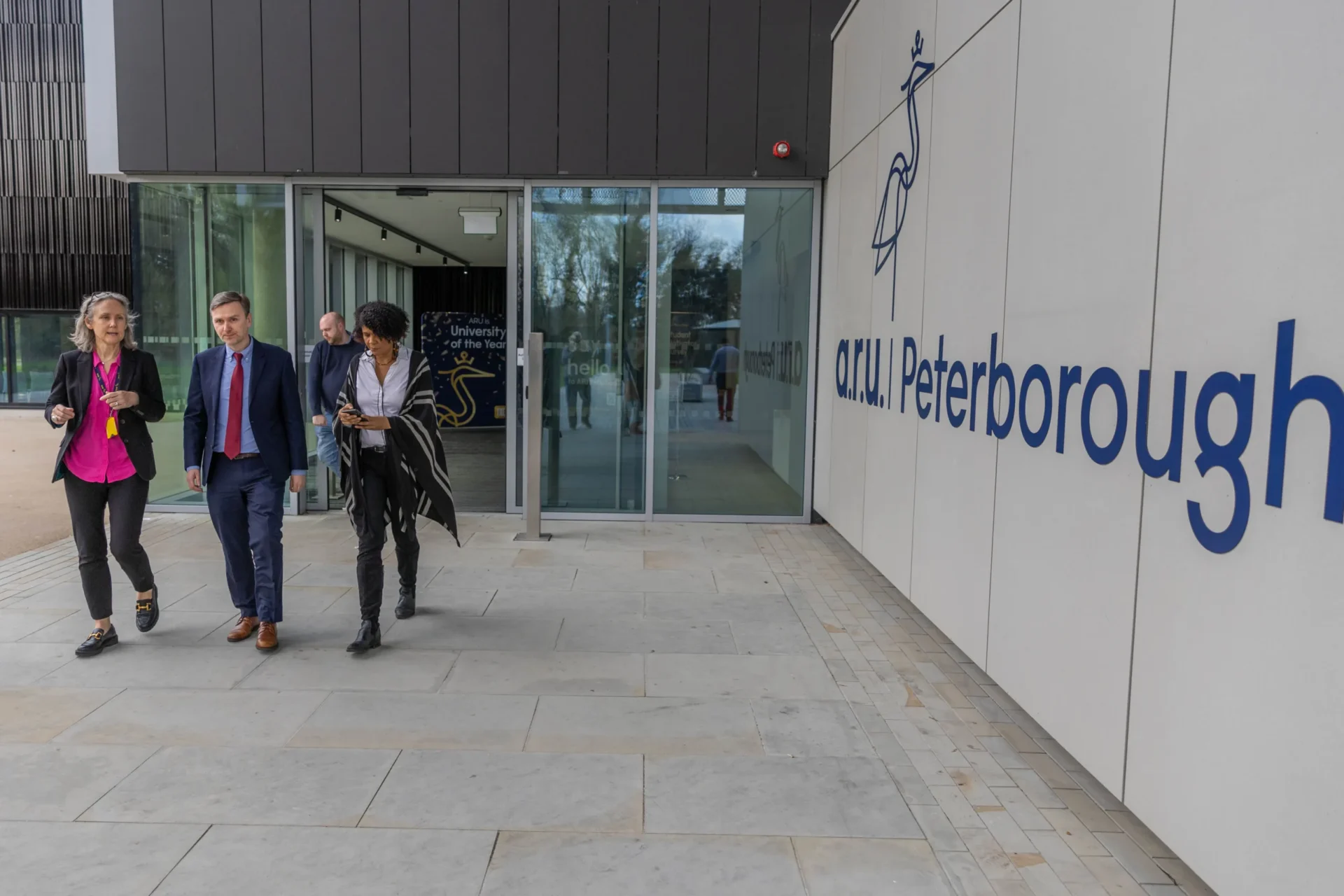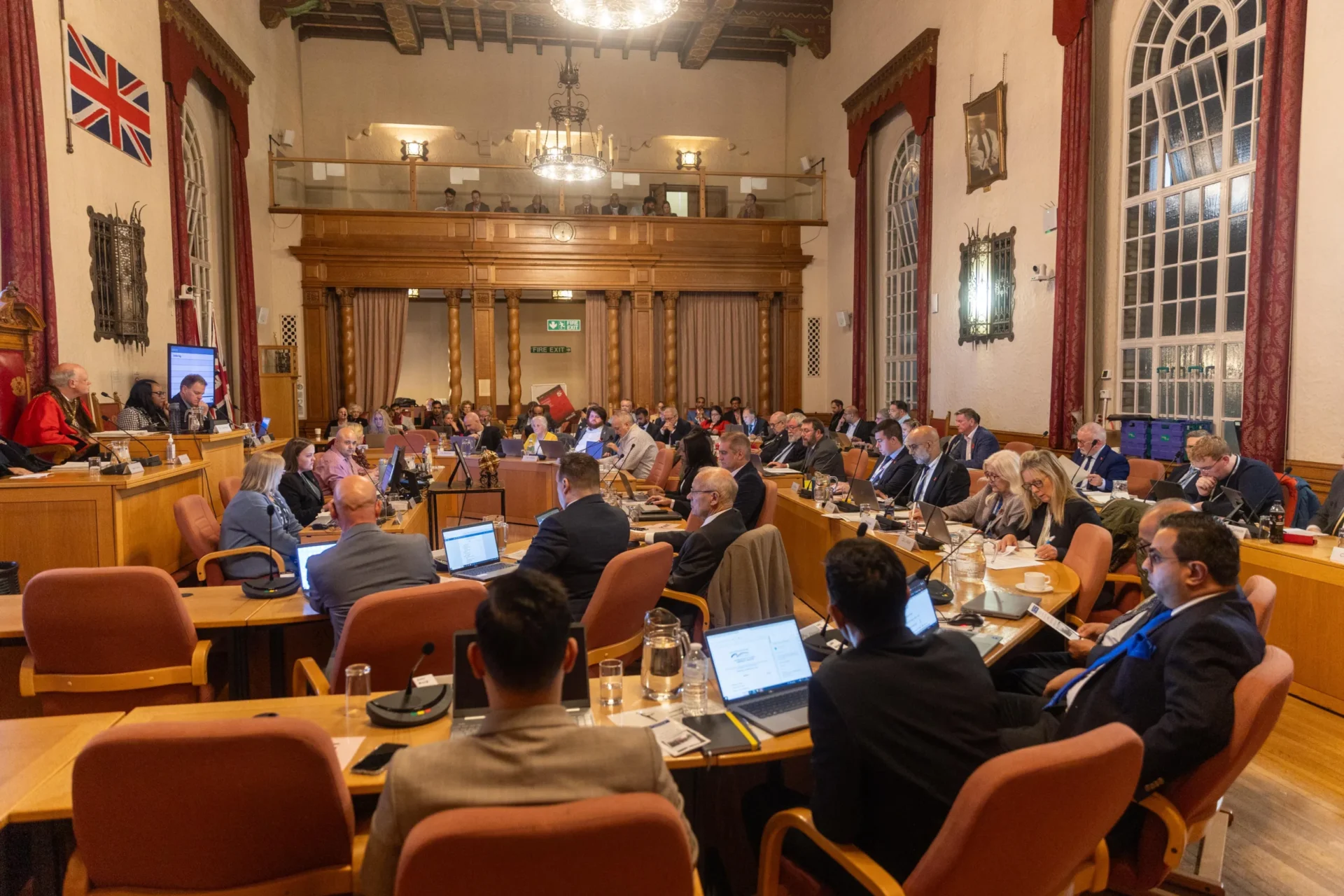A town’s greatest literary treasure is to go on show to the public to coincide with screening of the BBC’s latest classic serial Great Expectations.
Based on Charles Dickens’s masterpiece and starting on Sunday, March 26, remarkably the novel is still in print and a best-seller 153 years after its author died.
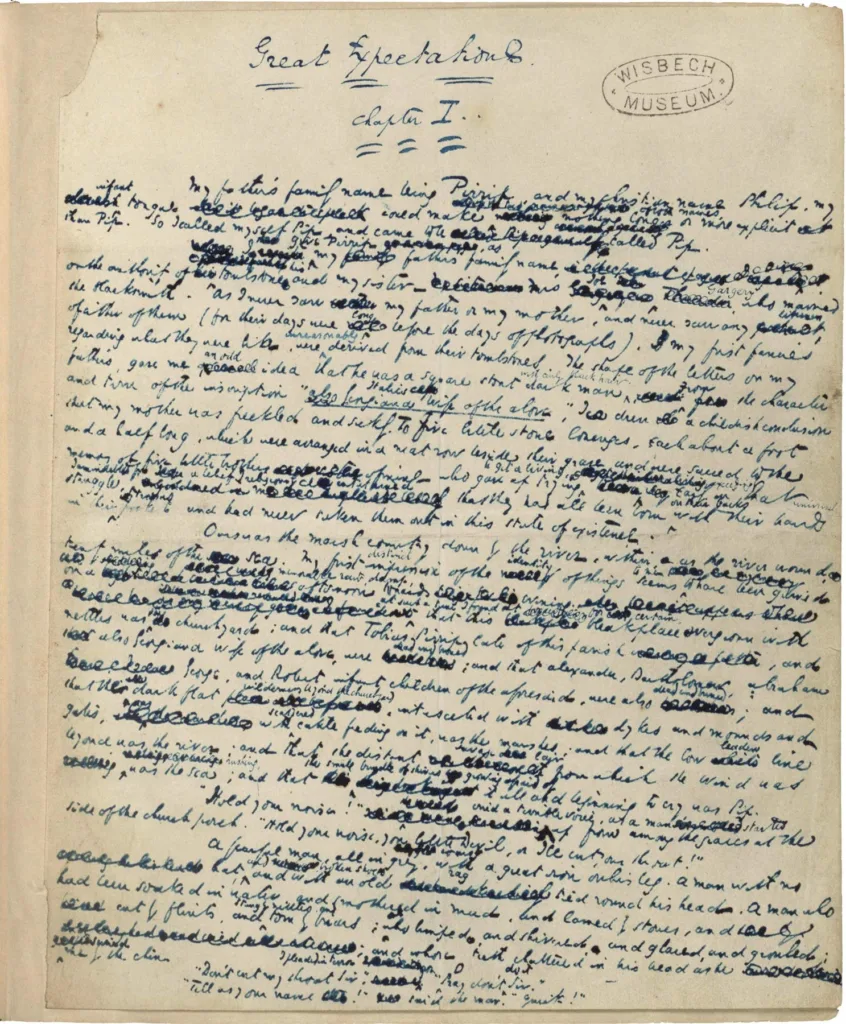
Locked in a safe in the Wisbech and Fenland Museum sits the original manuscript in his spidery handwriting, with its tendency to slope down to the right of the page.
The manuscript has four lines boxed in and scratched out by Dickens showing that he changed his original ending after advice from his friend Edward Bulwer-Lytton to soften it by making it more ambiguous.
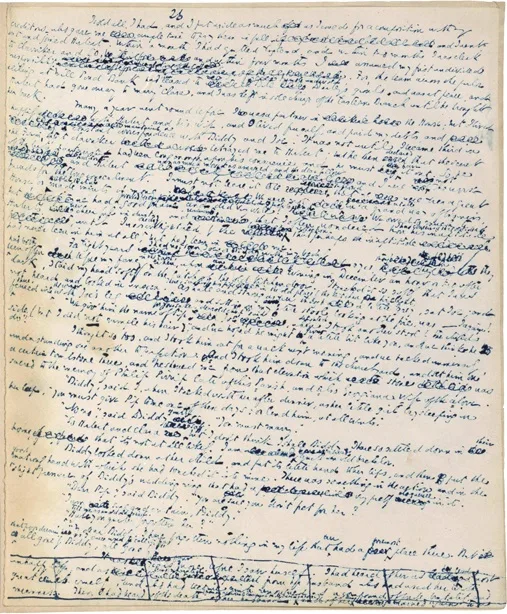
GE original ending: By the time he boxed and crossed out the first part of the novel’s
original ending, Dickens’ handwriting was virtually illegible!
Curator Robert Bell said: “The manuscript is a priceless document and quite fragile, so we try to avoid handling it too much and when it is put on display it is carefully protected.
“Recently we have displayed it in its glass-fronted case for viewings once a month on Saturdays only.
“But because interest in Great Expectations and its larger-than-life characters is being rekindled by the BBC’s Sunday night serial, with Olivia Coleman playing Miss Havisham, it will be on show when the Museum is open, from 10am to 4pm Wednesday to Saturday between March 29 and April 8.
“Dickens bound and gave the 1861 manuscript to his friend the Rev Chauncy Hare Townshend, who bequeathed it along with many other treasures to our Museum in 1868.
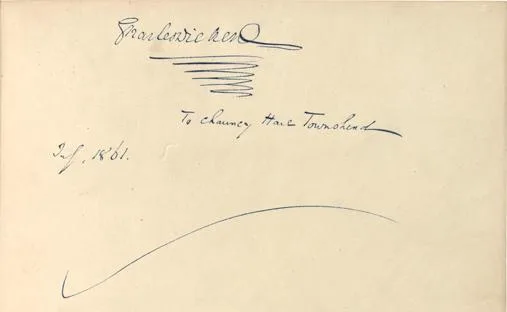
“The public can come and see the real thing in its sealed case and marvel at Dickens’ many changes and crossings out in the facsimile copy next to it. Also on display will be other Dickens-related manuscripts and books.”
Wisbech and Fenland Museum is run by an independent charity trust and is currently free to visit, though visitors’ donations are welcomed.
See www.wisbechmuseum.org.uk and follow on Facebook and Twitter.


